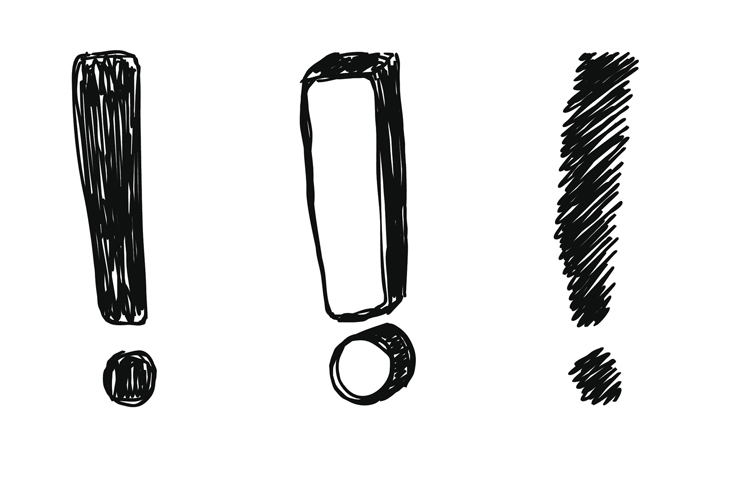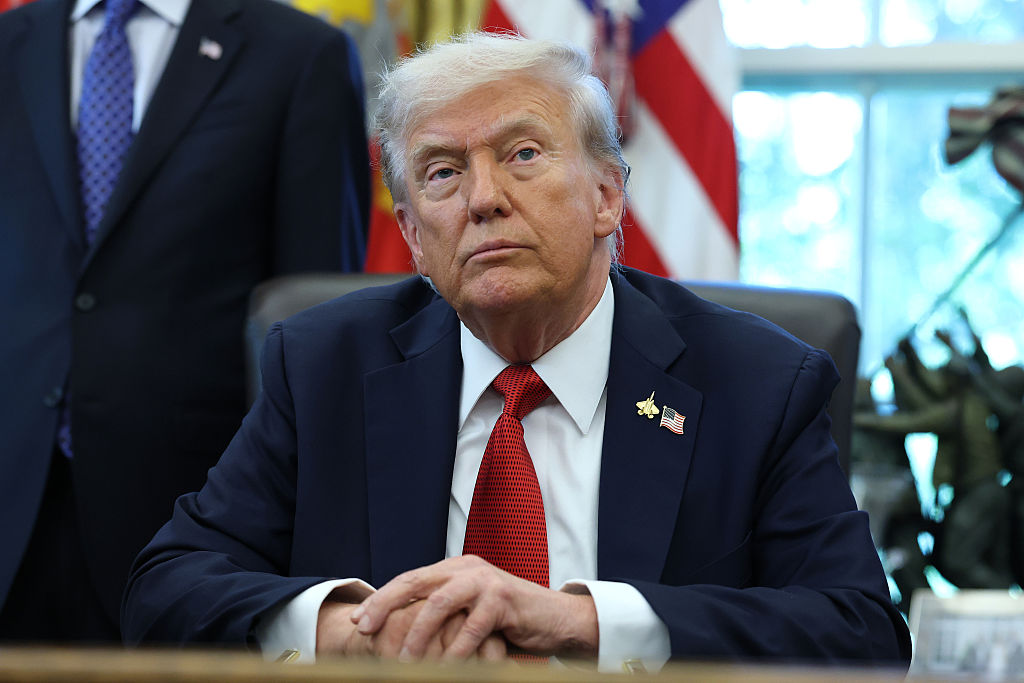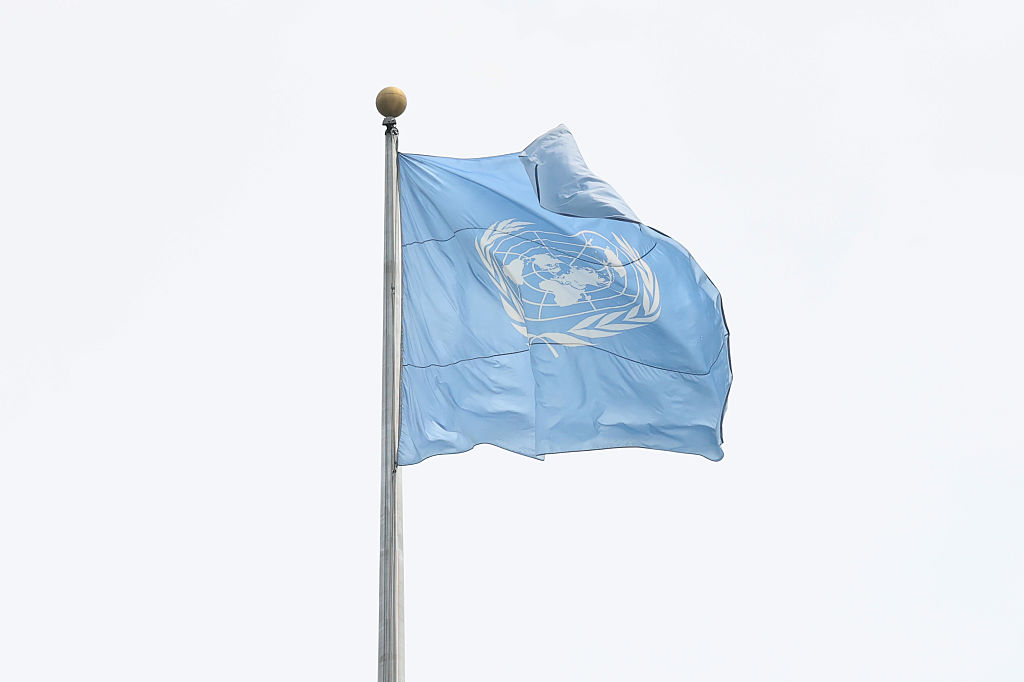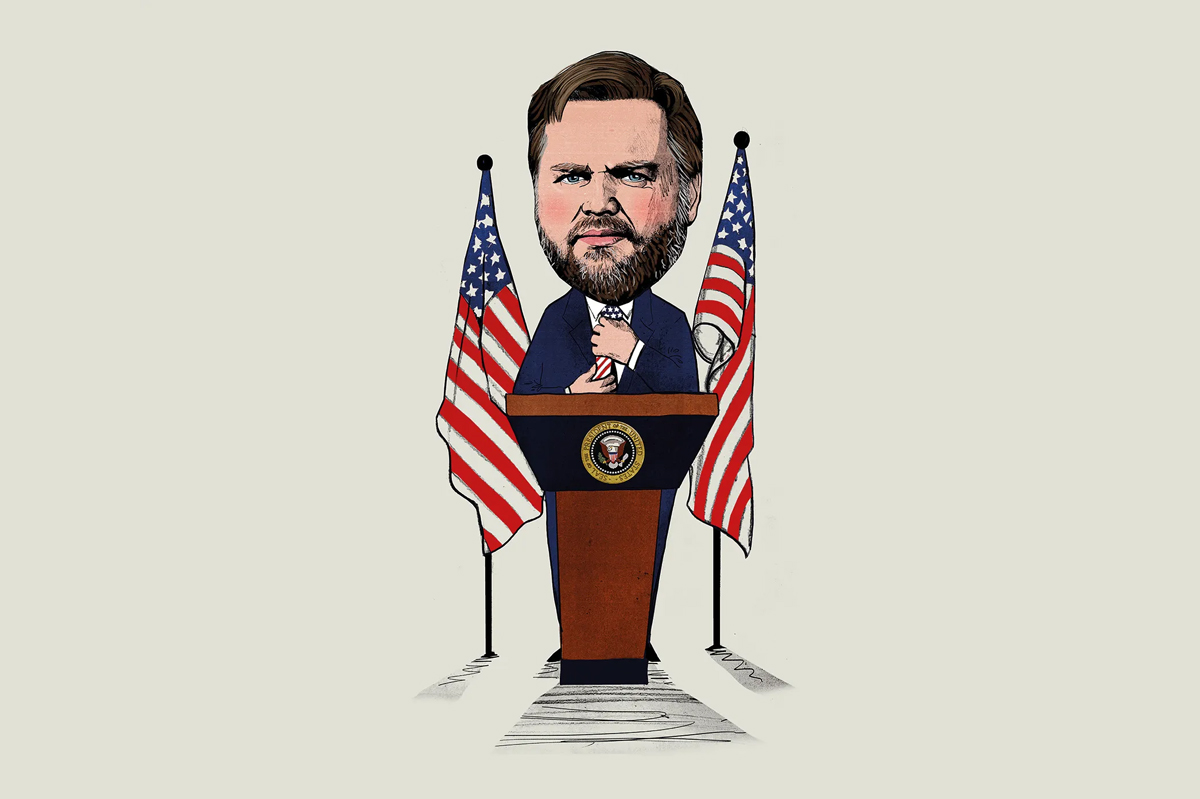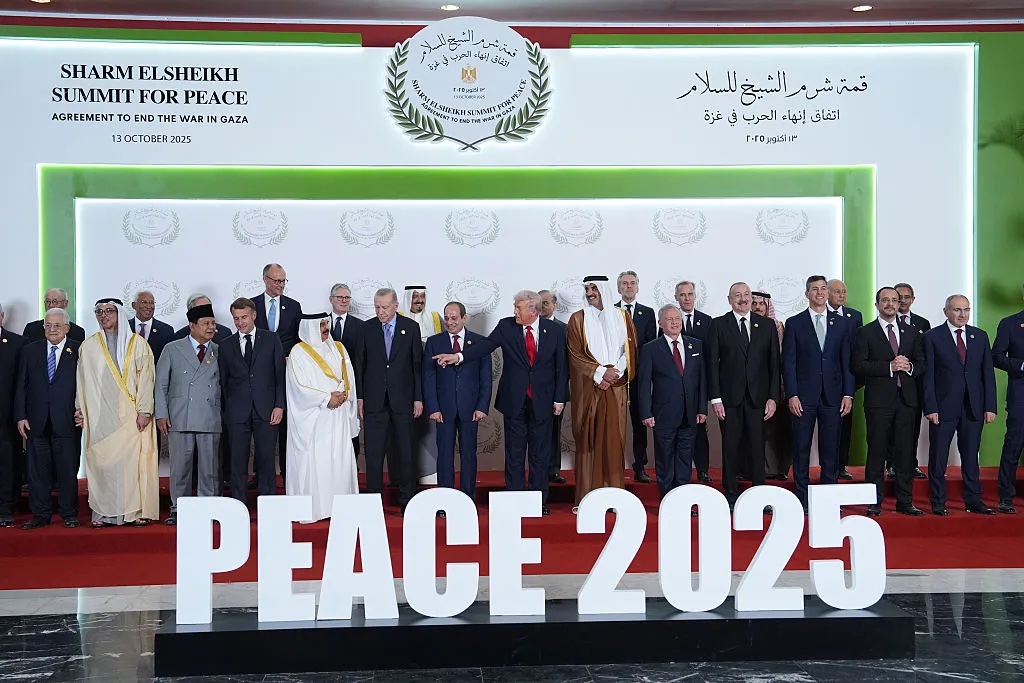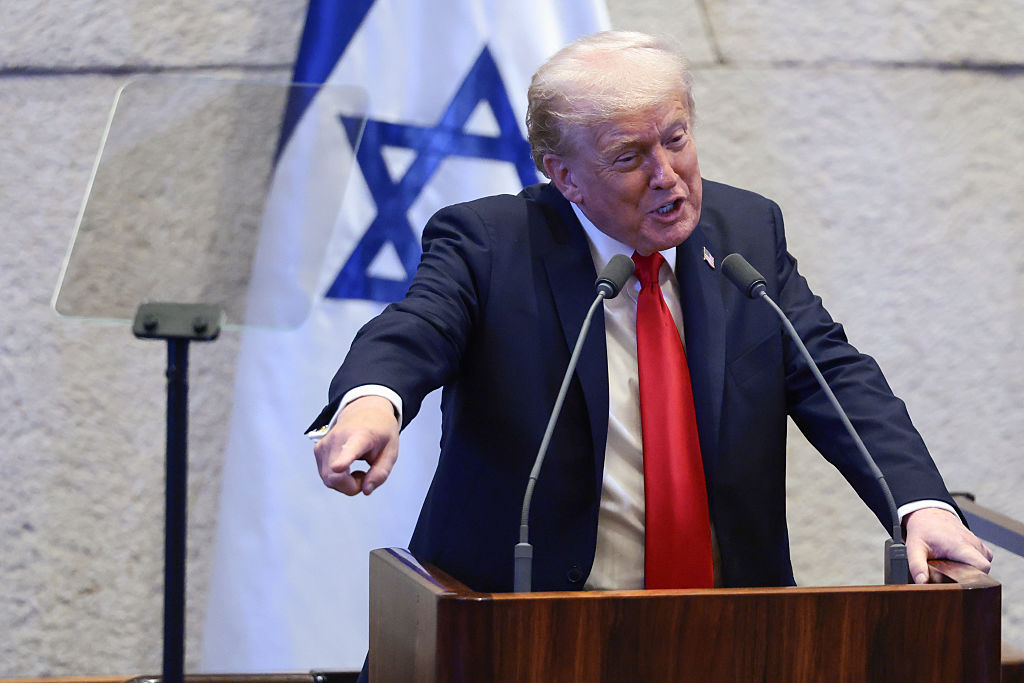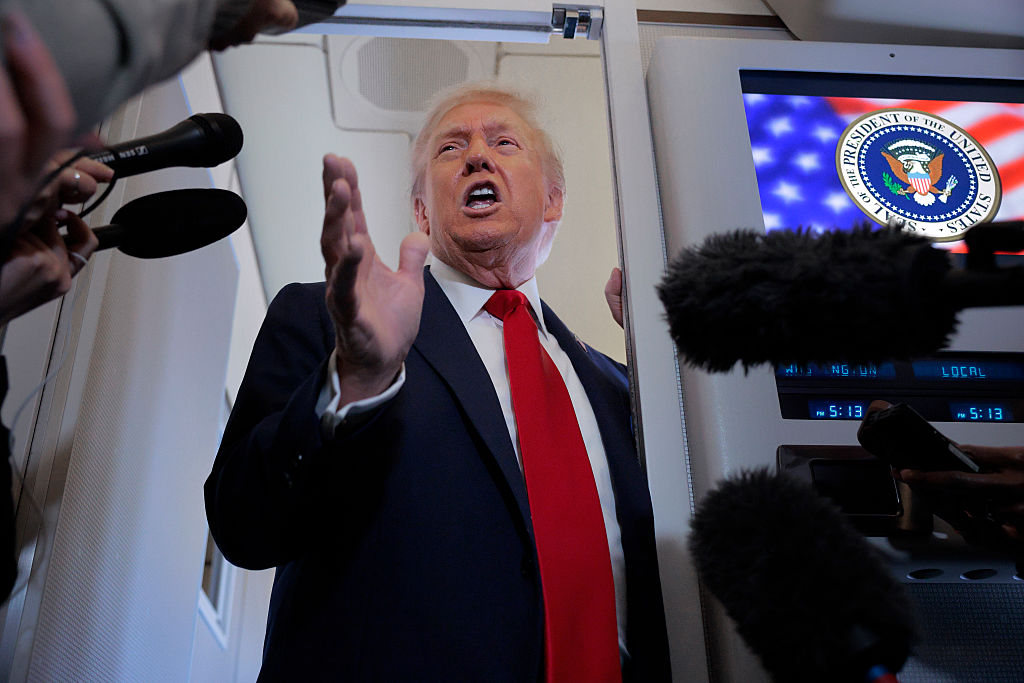‘The trade deal USMCA has received fantastic reviews. It will go down as one of the best ever made, and it will also benefit Mexico and Canada!’
These are the words of Donald Trump, not tweeted, not spoken, but written down on the headed notepaper of the White House and finished off with an exclamation mark (or exclamation point, as he would call it, being of the American persuasion). The punctuation is rather mysterious and I think it has one of four possible meanings.
First, I should probably say what an exclamation mark is. The question is more vexed than you think.
Most authorities on English style despise exclamation marks. The Economist Style Guide and Gower’s The Complete Plain Words don’t even acknowledge its existence. The guides of the Times and the Guardian limit themselves to three words each: ‘Nearly always unnecessary’ and ‘Do not use’. They treat poor ! like the drunk man at a funeral, in the vain hope that he will go away.
Fowler at least gazed upon the gorgon and announced that an exclamation mark was all right so long as you were writing something which was actually, technically, grammatically an exclamation. This is a phrase usually beginning with the word How, as in ‘How terrible art thou in thy works!’, ‘How art thou fallen from heaven, O Lucifer, son of the morning!’, or ‘How sweet of you!’ None of these are questions (although it’s rather fun to read them that way). You can also have a shorter exclamatory phrase such as ‘Ye gods!’ or ‘Bollocks!’
That’s the technical rule. But there are two ways of looking at punctuation: technical and expressive. In the technical view a sentence is a lovely little Swiss watch and the punctuation makes up the cogs connecting the parts. Punctuation has to do this a bit, or prose would fall apart, but pretty much every writer also uses punctuation as expressive. ‘Can I say how glad I am that you’re all here’ is rather odd if given the question mark that it yearns for grammatically, and is much better off with a full stop.
The exclamation mark can express excitement, noise, an ejaculatory gurgle, if you will. The idea that no good writer would use an exclamation mark for anything other than a grammatical reason is not really true. Jane Austen, who, whatever you may think of her, was a much better writer than Fowler, racked up 495 in Pride and Prejudice, which averages out as about two a page in my copy. However, she, that is to say Jane Austen, that is to say the narrator, never uses an exclamation mark. It is only the characters who use it, and they use it within their direct speech, often to indicate how very silly they’re being. I just went through the first hundred and the majority belong to Mrs Bennett. The exclamation mark, for Miss Austen, was a marker of emotional incontinence.
But there are still three more ways that ! gets used, even if it shouldn’t be. The first is its employment to express your surprise. Dear reader! The thing I’ve just told you is astonishing! Cleopatra lived closer in time to us than to the building of the Great Pyramid! Bulls are red-green colour-blind!
This is a horrible crime against punctuation. It is, unfortunately, the reader who decides whether a sentence is interesting, and not the writer. Or to put it another way, it is, unfortunately, the reader who decides whether a sentence is interesting, and not the writer!
There remain two further usages: one primarily American, and one primarily British. The American one is awkward and annoying, but ours is horrid.
In almost all business dealings I’ve ever had with Americans, there have been exclamation marks everywhere. They are of the kind used to denote excitement (rather as Miss Austen used them), but they are attached to phrases that couldn’t possibly excite anybody, even an American. ‘The product release is scheduled for late May! We have some marketing strategies in the pipeline! It would be useful to arrange a conference call! We’d like your input!’
As a Briton, I never know how to reply. Should I exclaim back across the Atlantic? To use only full stops would make me sound so phlegmatic, so icy. I would be like one of those cold Hollywood villains that Alan Rickman played so well. A simple sentence: ‘I would be happy to arrange a conference call. What about Monday?’ — suddenly sounds like a sneer. And I am no sneerer — I just don’t want to leap and grin while saying something utterly mundane. That’s what an exclamation mark does. It leaps and grins on your behalf.
But I do. I give in. Not much. But I find myself writing ‘Thank you for the update!’ And as I hold down the shift-press 1 something inside of me that was once so pure chokes in a sewer.
But the British are worse. Much worse. We use ! to indicate a joke that isn’t a joke. It’s the equivalent of somebody who says ‘I’m always losing my car keys’, and then laughs. They hope you will laugh too, despite the fact that the statement is not remotely amusing. I once received a wedding invitation that said that you could drive to the ceremony ‘if you can find a place to park!!!!!’ Five exclamation marks.
So how was Mr Trump using his exclamation point?
‘The trade deal USMCA has received fantastic reviews. It will go down as one of the best ever made, and it will also benefit Mexico and Canada!’
Is it an exclamation proper? Or an Austenish excitement? Is it that the whole statement is unbelievable, or are we merely to be surprised that Mexico and Canada also benefit? Is it American excitement? Or is Mr Trump making a bad British joke?
The answer is, I think, all these. He is a master of Empsonian ambiguity, of a playful Kantian excess of signification, which his wilder-eyed detractors will never fully appreciate. Mr Obama, on parting with his staff at the end of his tenure, told them: ‘This is not a period, this is a comma in the continuing story of building America.’ But America has now entered the age of the exclamation.
This article was originally published in The Spectator magazine.



